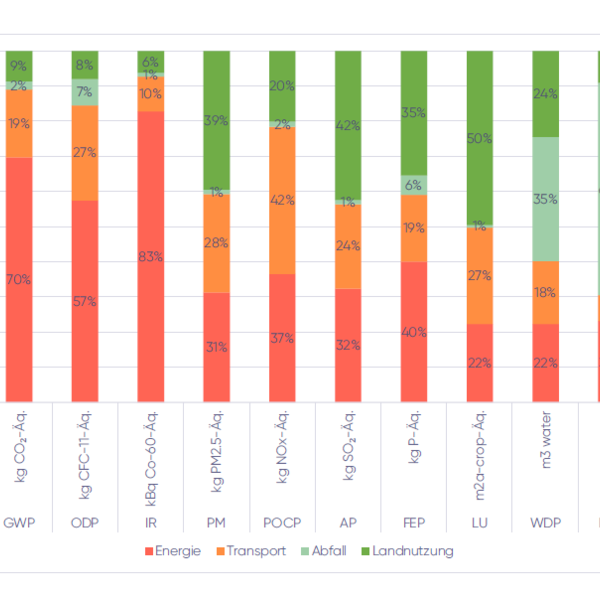Life cycle assessment of Ruhrort
In September 2023, the analysis phase was completed, and the first Life Cycle Assessment (LCA) for the urban neighborhood of Duisburg-Ruhrort was created as a component of Urban Zero.

In September 2023, the analysis phase was completed, and the first Life Cycle Assessment (LCA) for the urban neighborhood of Duisburg-Ruhrort was created as a component of Urban Zero.

The shift towards an environmentally neutral neighborhood starts with a comprehensive life cycle assessment (LCA), extending well beyond the tracking of greenhouse gas emissions. It makes visible not only the impacts on climate change but also other significant environmental effects. An LCA provides a holistic evaluation of all potential environmental impacts, encompassing a range of sectors and scopes, including both direct and indirect emissions.
A comprehensive analysis is conducted on diverse influencing factors to provide a holistic perspective. Besides the consequences of greenhouse gas emissions, other crucial categories are considered in the assessment and prediction of environmental impacts. These include aspects such as acidification, eutrophication, ground-level ozone pollution, and stratospheric ozone layer depletion. These factors are significant as they affect the ecologically protected assets, which includes the ‘ecosystem’ and ‘human health’.
The analysis adheres to the international Greenhouse Gas Protocol for Cities standard and proceeds methodically. Initially, a screening study utilizing secondary data is conducted, with the energy, transport, and waste sectors being the primary focus. These sectors are not only the minimum required by the standard but also the ones anticipated to have the highest emissions and environmental impact. Subsequently, the analysis will expand to include additional sectors, such as those related to agricultural activities.
As an additional step, the citizens of Ruhrort will also be encouraged to determine their personal environmental impact.
How can the accuracy of the results be ensured?
The Life Cycle Assessment (LCA) is executed by skilled and seasoned professionals with a scientific background, using specialized software that adheres to international standards such as ISO 14040/44 and the GHG Protocol. The results are validated, for instance, by comparing them with carbon footprint analyses from different regions or cities. Given that the City-LCA approach is an emerging scientific technique, this project also functions as a pilot to test the method and contribute to the generation of new scientific insights.
The plan is to publish scientific articles detailing the methodology and results throughout the project's duration. This will facilitate academic verification and enable the international dissemination of the knowledge acquired.
The life cycle assessment takes into account all relevant environmental aspects and potential environmental impacts. The results of the analysis provide the foundation for monetizing the ecological damage. Reduction measures can be developed on the basis of the recognized ecological ‘hot spots’.